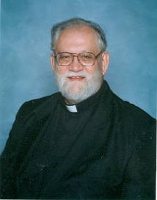|
Say About Abortion? by Fr. Stanley Harakas On January 22, 1973, the Supreme Court of the United States made its long awaited ruling on abortion. It declared in a 7 to 2 vote that during the first three months of pregnancy the decision to have an abortion should be left entirely to the woman and her doctor. During the next three months the state's interest in the health of the mother and in the life of the unborn child is great enough to permit standards and conditions to be set under which abortions may or may not take place. In the last three month period a state may, if it chooses, prohibit all abortions, except those required to save the life of the mother. These restrictions on the freedom to perform abortions are based on the state's constitutional responsibility to protect the life of its citizens. The Reasons Given Justice Harry A. Blackmun, who wrote the majority decision, used two basic lines of reasoning to justify the decision. The first was the Constitution's mention of personal liberty. This was broadened to include a woman's decision to bear a child or not. The Supreme Court thus adopted the view that the fetus, during the first three months, was not a person and not in any way protected by the law. However, the second line of thinking indicated that at a certain point in time - the beginning of the fourth month - "the potential life of the unborn infant becomes sufficient to justify some state regulation of abortion." And further, at the beginning of the seventh month, states may prohibit abortions generally (with the except of saving the woman's life). At any rate, unborn children are not to be considered persons from a constitutional point of view until they are born. Thus, in the first three months, the Supreme Court recognized no rights to the fetus, but the longer it lives, the greater claim to state protection is accorded to it. Are They Reasonable? The key to understanding the meaning of this decision is found when we ask what happens, in this kind of reasoning, to the constitutional right of a woman to decide about an abortion after the first day of the fourth month. It disappears. It is no longer hers. Why? Because somehow it is decided that with the beginning of the fourth month "the potential life is great enough" to limit her freedom. This argument is the old view of "quickening" dressed in new robes of Constitutional law. Since most mothers begin to feel some movement about the end of the third month and the beginning of the fourth month, this was considered in the western legal tradition a good point for indicating that the fetus was "alive" and since its presence had been felt, somehow it had to be taken notice of and protected. At a certain "point in time" mothers lose their freedom to freely and unrestrictedly abort and potential babies "can make claims on the protection of the state." This is the most unscientific reasoning that can be used. Biologists and geneticists recognize that "studies in embryology and genetics have conclusively proved that the embryo from conception to birth is a living human individual." New techniques are able to diagnose illness in embryos and treatments have been developed to deal with the condition. Scientists know that the newly conceived child is different than the mother's tissue, the father's genetic make-up, or anyone else's for that matter. There is no justification at all for making an arbitrary and totally unscientific decision to determine that the fetus' claim to protection from the state begins that the time when fetal movements are usually felt. Orthodox Christian Truth The Roman Catholic theological tradition has long involved itself in the dispute regarding when the soul enters the body, and how this takes place, thus giving credence to the "quickening theory." The Orthodox Christian tradition has never done so. In fact, Saint Basil, in his second canon, makes a point in ruling out this kind of discussion, using the then-current terms "formed and unformed" regarding the embryo. A woman who aborts deliberately is liable to judgment as for murder; among us there is no exact definition of that which is formed and that which is unformed.He goes on to indicate that justice is to be provided for the fetus by this rule, since [willful] destruction of the embryo is murder. Further, Orthodox theology knows of no stopping point point in our human development. Passage from the mother's birth canal is no magical "humanizing" event. The church's theology points to the fact that until we fully realize God's presence in our lives we can't realize our full humanity. In fact there is no end to "becoming human" — we keep growing as human beings from "glory to glory" (2 Corinthians 3:18). In the view of the Church, our unique existence begins with our conception and our growth begins in our mother's womb. It continues throughout our life: physically, mentally, socially, and spiritually. And it ends only when we die. There is no "stopping place" in between. "Quickening," or as it is paraphrased by the Supreme Court majority opinion, "certain points of time," is simply bad reasoning. It is unscientific. And it is not in accordance with Orthodox Christian truth. It is a poorly reasoned decision. |
 Fr. Stanley Harakas |